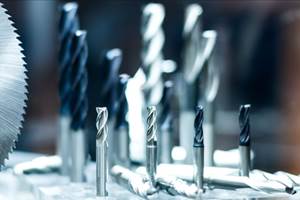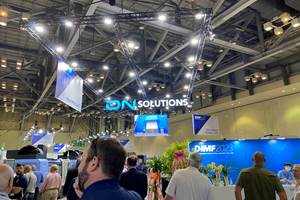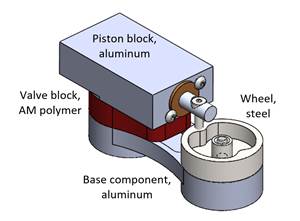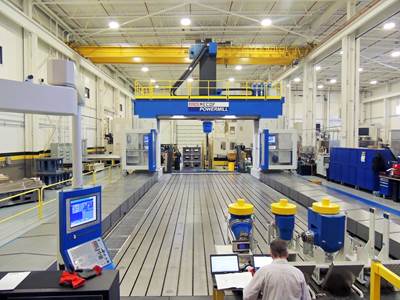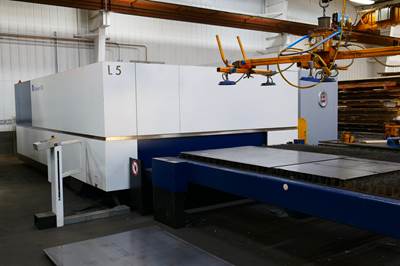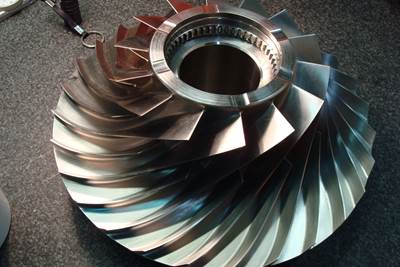Share




Mike Budde says that throughout his career, there’s always been a part of him that wanted to own his own business. “I think it’s something that developed over time and took a little bit to mature, frankly, but it’s been there all along,” he explains. But figuring out the right time to become a shop owner wasn’t as clear-cut. “That's, in a lot of ways, the magic question,” he says. “In retrospect I could have done it five or 10 years earlier, but I took a cautious approach. I wanted to be sure I was ready.” And that turned out to be the first of many challenges on his road to shop ownership.
In 2019, he became the owner of the business he now calls Budde Precision Machining, a 10-employee job shop in Dayton, Ohio. We recently reported on the shop’s expansion of capacity to take on production work.
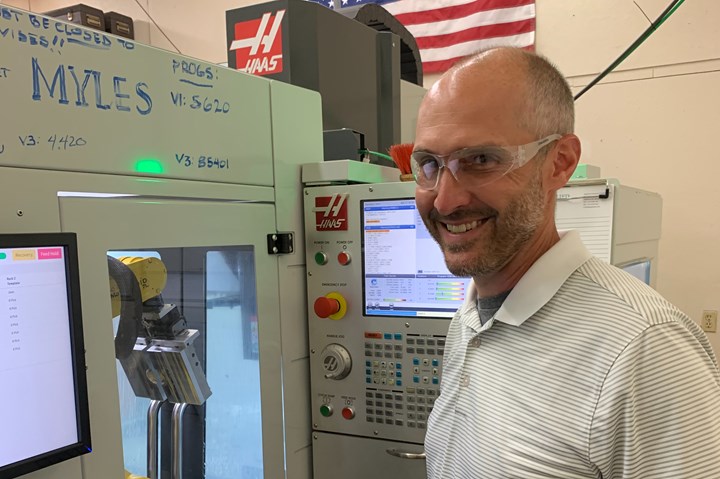
After a year and a half of searching for a business to acquire, Mike Budde purchased Toolrite Manufacturing (later renamed Budde Precision Machining). Over his two years of shop ownership, he has built up the trust of his employees and customers and expanded the company to take on new types of work.
He had a plan for the business he wanted to lead and grow, so he had a good idea of what he was looking for when considering shops to buy. He wanted a company that provided a solid foundation of capabilities, systems, customers and people. “As we grow, we don't want to change that foundation,” he explains. “We want to add on to it and build it, so that needs to be solid.” He had a list of characteristics in mind, and while he didn’t expect to find a business that matched perfectly, he needed a shop that was 85% there in order to quickly start working toward his vision of becoming a high-end production parts supplier.
But finding shops that were open to acquisition proved to be another challenge. “A company that is considering selling doesn't necessarily want the world to know that,” he explains. He consulted regularly with advisers in banking, brokering, accounting and law, networked with the local manufacturing community, and checked listings regularly. “In a lot of ways, it was good prep for being a business owner, having to pull those threads myself,” he says. He did find shops looking to sell, and seriously considered a handful of them. After a year and a half of searching, he purchased a tool-and-die shop called Toolrite Manufacturing, later renamed Budde Precision Machining.
According to Budde, the shop filled nearly every requirement. The employees were up to the skill level he needed, the customer base was solid, and the systems that were already established, such as ERP and material ordering processes, were strong. “All those things were in place to support the customers and to support the machinists, which was really important as a foundation from which to grow,” he says.
But even with a solid foundation, it was intimidating for Budde to step into his role as the shop’s new owner. “It’s scary because there are these two critical aspects, the team in the building and the customer base outside, and you’re walking in and asking them all to take a leap of faith and trust you as the new guy,” he explains.
Having met the staff before everything was finalized, Budde says he felt comfortable coming in as their new boss because he felt confident in what they could do. But he still had to build their trust in him. “That comes from proving yourself,” he explains, and he knew had some things to prove to his new staff. “Toolrite was founded by toolmakers, so I walked in on day one, and the first thing I said is, ‘I'm not a machinist,’” he says. “The record skipped and everybody kind of goes, ‘Well, what are you doing?’” However, he was able to demonstrate the value of his experience in the front office and engineering side of the business and build trust from there.
He says his first order of business was making sure that the company wasn’t going to move backwards on anything before moving forward with any of his plans. This meant looking to the value of existing customer relationships, existing employees and existing equipment — and looking to where attention was needed in any of these areas. “From there, you trust your business plan and you trust the reasons that you’re in it in the first place,” he says.
His two years of shop ownership have included ups and downs, and he says his biggest lesson has been learning how to “monitor the average,” so as not to get so caught up in the highs or bogged down by the lows that he loses sight of the big picture.
When it comes to advice for prospective shop owners, Budde suggests assembling a team of mentors and advisers who can provide personalized guidance throughout the acquisition process. But generally, he encourages potential shop owners to prepare themselves for both the stresses and rewards of the job, and consider their motivations. “Trying to build something special is a pretty noble fundamental goal, and it really helps guide that decision,” he says.
Related Content
Addressing the Manufacturing Labor Shortage Needs to Start Here
Student-run businesses focused on technical training for the trades are taking root across the U.S. Can we — should we — leverage their regional successes into a nationwide platform?
Read MoreHow I Made It: Amy Skrzypczak, CNC Machinist, Westminster Tool
At just 28 years old, Amy Skrzypczak is already logging her ninth year as a CNC machinist. While during high school Skrzypczak may not have guessed that she’d soon be running an electrical discharge machining (EDM) department, after attending her local community college she found a home among the “misfits” at Westminster Tool. Today, she oversees the company’s wire EDM operations and feels grateful to have avoided more well-worn career paths.
Read MoreDN Solutions Responds to Labor Shortages, Reshoring, the Automotive Industry and More
At its first in-person DIMF since 2019, DN Solutions showcased a range of new technologies, from automation to machine tools to software. President WJ Kim explains how these products are responses to changes within the company and the manufacturing industry as a whole.
Read MoreSolve Worker Shortages With ACE Workforce Development
The America’s Cutting Edge (ACE) program is addressing the current shortage in trained and available workers by offering no-cost online and in-person training opportunities in CNC machining and metrology.
Read MoreRead Next
Growing Closer: Machine Shops and 3D Printing for Production
Machining a large 3D-printed part for aerospace composite tooling is fundamentally different than manufacturing the part traditionally. Baker Industries knows this first-hand.
Read MoreGrowing a Job Shop into a Full-Service Manufacturer
By maximizing employee satisfaction, adding fabrication and other services, and always keeping open machine capacity, Square Deal has grown from a seven-person job shop to a full-service manufacturer that employs hundreds.
Read MoreWhen Organic Growth in Your Machine Shop Isn’t Enough
Princeton Tool wanted to expand its portfolio, increase its West Coast presence, and become a stronger overall supplier. To accomplish all three goals at once, acquiring another machine shop became its best option.
Read More

























